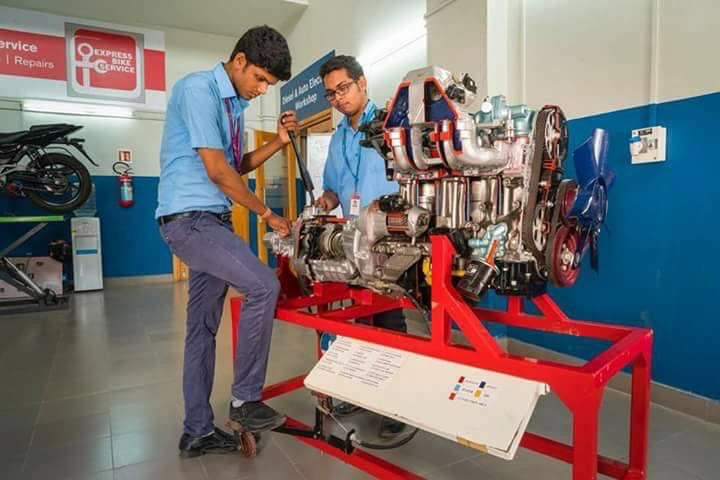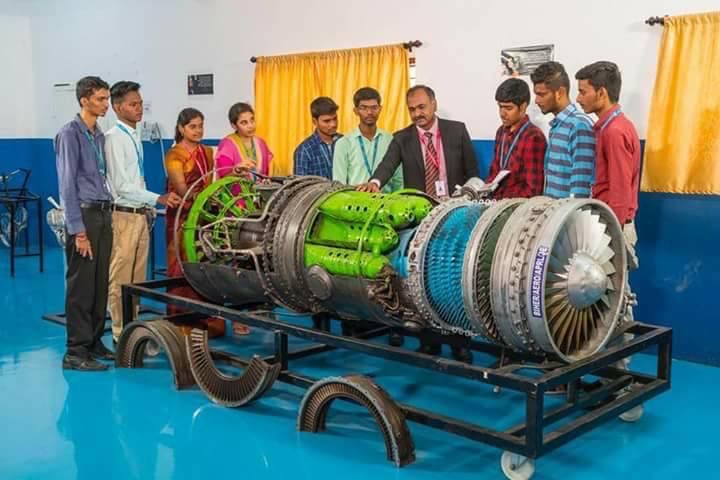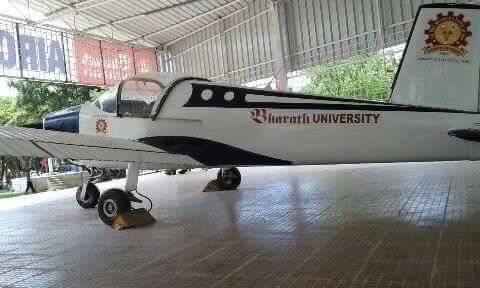Welcome to School of Bio-Engineering
About The School :
The School of Bioengineering was started in the year 2003. The School has teaching and research programmes which encompass various basic and applied aspects of modern biotechnology. The main objective of the School of Bioengineering is to provide academic training and conduct research in the interdisciplinary areas of Biotechnology and Biomedical engineering with a particular emphasis on extending the knowledge generated from these studies towards the development of technologies of commercial significance. The school has ever since demonstrated an unfailing commitment towards research and man-power development in frontier areas of integrative biology. This school since its inception emphasizes on appointing and inculcating meritorious faculty in various specialized branches in Bioengineering.
As technology continues to evolve, so does the field of medicine. Biomedical engineering has become an increasingly popular field of study for those interested in combining their passion for science and technology. B.tech Biomedical Engineering is a degree program that focuses on the application of engineering principles to the design and development of medical equipment and devices. With advances in medical technology, there has been a growing demand for professionals who can bridge the gap between medicine and engineering. B.tech Biomedical Engineering is an exciting and challenging field that offers a wide range of career opportunities. The best engineering college in chennai that offers B.tech Biomedical Engineering college in Tamilnadu, its scope, and the various career paths available to those who pursue this degree. So, whether you are a student or a professional looking to switch careers, keep reading to learn more about this dynamic field.
The school offers UG and PG programmes in Biotechnology and Biomedical Engineering. The curriculum is designed in such a manner that the students can be placed in various giant industrial establishments like Biocon, Shantha Biotech, Reddy’s Lab, Life Cell, Siemens healthcare, Wipro biomedical etc. Fortunately, the IT companies like Accenture, Infosys, Wipro, HCL, Cognizant etc. have opened up Life Science Divisions which has also led to increased job opportunities. Bioengineering has applications in pharmaceutical, cosmetic, food, agriculture based and environment related industries. Many Quality control labs of food and pharma labs hire Bioengineering graduates. Medical coding is another area which has growing demand of bioengineering graduates for placements.
The faculty members at the school are decorated with national and international recognitions. The faculty members have been excellent teachers and research Scientists. The members have excellent records of publication in journals with high impact factors. The school has conducted various national and international conferences, workshops and guest lectures. It has been actively doing research in the thrust areas like Biodiesel production, Biofertilizers, Cancer Biology, medicinal plants, prosthetics and enzyme technology. It takes pride in pronouncing that it has about 500 paper publications in Scopus and other peer-reviewed journals.
Vision & Mission
Our Vision :
To provide an excellent academic environment for the benefit of diverse learners of divergent background and faculty to acquire technological competence on par with global heads in bioengineering research by adopting ethical and sustainable growth.
Our Mission :
- SM 1 To attain quality education in pursuit of fundamental knowledge involving creativity and logical reasoning in the rapidly advancing field of bioengineering.
- SM 2 To acquire specialised knowledge in research par excellence with global standards.
- SM 3 To provide exposure to cutting edge technologies by integrating experiential and skill based teaching methodologies adopting ethical environment.
- SM 4 To impart education to the bioengineers by ensuing activities for the welfare of society and sustainable environment.
Deans Desk :
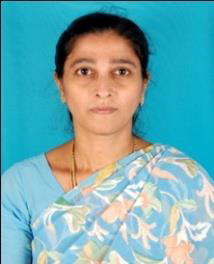
- Dr. L. Jeyanthi Rebecca, B.Sc. (For), M.Sc. (Ag), D.Sc.,
- Professor and Dean,
- School of Bio - Engineering, BIHER
Greetings! On behalf of the faculty members and students of the Department of Agricultural Biotechnology of Bharath Institute of Higher Education and Research (BIHER), I welcome you all to the creative world of Biotechnology. I believe the Biotechnology has been widely recognized as an essential source and technique for the advancements in all spheres of human endeavour now and in future.
In BIHER all the students get the opportunity to excel in their academic activities. This is the department where students are nurtured to publish papers in international and national journals, present papers in conferences and symposium apart from helping them to achieve some recognition in extra-curricular and co-curricular activities.
Among the reasons why our BIHER graduates are such favourites of industries is the consistent hands-on experience-based approach of our curriculum, our excellent laboratories, the long-time connections between Department and the industry. We hope you will also have the opportunity to visit us to see our state-of-the-art facilities.
Board of Studies
Members of BOS ( June 2024 – May 2025 ) :
| S.No | Name | Designation | Core Competency |
|---|---|---|---|
|
|||
|
|||
|
|||
|
|||
|
|||
|
|||
|
|||
|
|||
|
|||
|
|||
|
|||
BIHER
B.Tech - Bio-Technology :
- PEOs
- POs
- PSO
- Regulation
- Curriculum Syllabus
Programme Educational Objectives – (PEOs)
-
PEO 1:
To gain the skill of using advanced technologies to bring forth revolutionary developments in medical, pharmaceutical and agricultural sectors
-
PEO 2:
To enhance the proficiency in the applications of genetic engineering and agriculture to succeed in entry level positions at industries at the national and international levels and for continuing education.
-
PEO 3:
To develop entrepreneurial skills to encompass a blend of strong scientific expertise and business strategies along with the ability to identify market opportunities in biotechnology within the realistic constraints such as economic, environmental, social, ethical, health, safety and sustainability
Programme Outcomes – (POs)
-
PO 1: Engineering Knowledge:
Apply the knowledge of mathematics, science, engineering fundamentals, and engineering specialization to the solution of complex engineering problems.
-
PO 2: Problem Analysis:
Identify, formulates, research literature, and analyze engineering problems to arrive at substantiated conclusions using first principles of mathematics, natural, and engineering sciences.
-
PO 3: Design/development of Solutions:
Design solutions for complex engineering problems and design system components, processes to meet the specifications with consideration for the public health and safety, and the cultural, societal, and environmental considerations.
-
PO 4: Conduct Investigations of Complex Problems:
Use research-based knowledge including design of experiments, analysis and interpretation of data, and synthesis of the information to provide valid conclusions.
-
PO 5: Modern Tool Usage:
Create, select, and apply appropriate techniques, resources, and modern engineering and IT tools including prediction and modeling to complex engineering activities with an understanding of the limitations. .
-
PO 6: The Engineer and Society:
Apply reasoning informed by the contextual knowledge to assess societal, health, safety, legal, and cultural issues and the consequent responsibilities relevant to the professional engineering practice.
-
PO 7: Environment and Sustainability:
Understand the impact of the professional engineering solutions in societal and environmental contexts, and demonstrate the knowledge of, and need for sustainable development.
-
PO 8: Ethics:
Apply ethical principles and commit to professional ethics and responsibilities and norms of the engineering practice.
-
PO 9: Individual and Team Work:
Function effectively as an individual, and as a member or leader in teams, and in multidisciplinary settings.
-
PO 10: Communication:
Communicate effectively with the engineering community and with society at large. Be able to comprehend and write effective reports documentation. Make effective presentations, and give and receive clear instructions.
-
PO 11: Project Management and Finance:
Demonstrate knowledge and understanding of engineering and management principles and apply these to one’s own work, as a member and leader in a team. Manage projects in multidisciplinary environments.
-
PO 12: Life-long learning:
Recognize the need for, and have the preparation and ability to engage in independent and life-long learning in the broadest context of technological change and engineering practice.
Programme Specific Outcomes – (PSOs)
-
PSO 1:
To make the student understand the concepts of molecular biology and process engineering necessary for food process and pharmaceuticals.
-
PSO 2:
To enable the student to acquire knowledge on the causes, therapy and prevention of heredity based diseases and other disorders
-
PSO 3:
To enrich the student with basic and modern techniques in genetic engineering and plant breeding for crop improvement.
Regulation
Curriculum Syllabus
BIHER
B.Tech - Industrial Bio-Technology :
- PEOs
- POs
- PSO
- Regulation
- Curriculum Syllabus
Programme Educational Objectives – (PEOs)
-
PEO 1:
To enhance their skills and embrace new thrust areas through self-directed professional development and post-graduate training or education..
-
PEO 2:
To gain experience in defining problems in the appropriate field of Engineering and Technology, designing, implementing, analyzing the experimental evaluations, and finally making appropriate decisions as entrepreneurs
-
PEO 3:
To apply ethical and social aspects of modern Engineering and Technology innovations to the design, development, and manufacturing of new products, machines, gadgets, devices as engineers of importance
Programme Outcomes – (POs)
-
PO 1: Engineering Knowledge:
Apply the knowledge of mathematics, science, engineering fundamentals, and engineering specialization to the solution of complex engineering problems.
-
PO 2: Problem Analysis:
Identify, formulates, research literature, and analyze engineering problems to arrive at substantiated conclusions using first principles of mathematics, natural, and engineering sciences.
-
PO 3: Design/development of Solutions:
Design solutions for complex engineering problems and design system components, processes to meet the specifications with consideration for the public health and safety, and the cultural, societal, and environmental considerations.
-
PO 4: Conduct Investigations of Complex Problems:
Use research-based knowledge including design of experiments, analysis and interpretation of data, and synthesis of the information to provide valid conclusions.
-
PO 5: Modern Tool Usage:
Create, select, and apply appropriate techniques, resources, and modern engineering and IT tools including prediction and modeling to complex engineering activities with an understanding of the limitations. .
-
PO 6: The Engineer and Society:
Apply reasoning informed by the contextual knowledge to assess societal, health, safety, legal, and cultural issues and the consequent responsibilities relevant to the professional engineering practice.
-
PO 7: Environment and Sustainability:
Understand the impact of the professional engineering solutions in societal and environmental contexts, and demonstrate the knowledge of, and need for sustainable development.
-
PO 8: Ethics:
Apply ethical principles and commit to professional ethics and responsibilities and norms of the engineering practice.
-
PO 9: Individual and Team Work:
Function effectively as an individual, and as a member or leader in teams, and in multidisciplinary settings.
-
PO 10: Communication:
Communicate effectively with the engineering community and with society at large. Be able to comprehend and write effective reports documentation. Make effective presentations, and give and receive clear instructions.
-
PO 11: Project Management and Finance:
Demonstrate knowledge and understanding of engineering and management principles and apply these to one’s own work, as a member and leader in a team. Manage projects in multidisciplinary environments.
-
PO 12: Life-long learning:
Recognize the need for, and have the preparation and ability to engage in independent and life-long learning in the broadest context of technological change and engineering practice.
Programme Specific Outcomes – (PSOs)
-
PSO 1:
To equip the student with the skill needed to device methods of conversion of waste and other environmental pollutants into value added bio products
-
PSO 2:
To meet the demand for biotechnology professionals for quality control and processing of food in food process industries
-
PSO 3:
To prepare the student with interest to design and develop new diagnostic and therapeutic tools needed for the early diagnosis of infectious diseases, cancer, lifestyle disorders and its prevention.
Regulation
Curriculum Syllabus
BIHER
B.Tech - Bio-Medical Engineering :
- PEOs
- POs
- PSO
- Regulation
- Curriculum Syllabus
Programme Educational Objectives – (PEOs)
-
PEO 1:
Improve health care by making scientific discoveries, solving problems, and advancing technology using fundamental concepts in Bio Medical Engineering.
-
PEO 2:
Apply critical reasoning, quantitative, qualitative, designing and programming skills, to identify, solve problems and to analyze the experimental evaluations, and finally making appropriate decisions, and to enhance the techniques in the field of Biomedical Engineering.
-
PEO 3:
Broaden knowledge to establish themselves as creative practicing professionals, locally and globally, in fields such as design, research, testing and manufacturing of Medical Electronics and Instrumentation Systems
-
PEO 4:
Inculcate professional skills and soft skills such as proficiency in languages, technical communication, verbal, logical, analytical, team building, inter personal relationship, group discussion and leadership skills for meeting the changing needs as Entrepreneurship in healthcare profession.
-
PEO 5:
Apply the ethical and social aspects of modern Engineering and Technology innovations to the design, development, and usage of new products, machines, gadgets.
Programme Outcomes – (POs)
-
PO 1: Engineering Knowledge:
Apply the knowledge of mathematics, science, engineering fundamentals, and engineering specialization to the solution of complex engineering problems.
-
PO 2: Problem Analysis:
Identify, formulates, research literature, and analyze engineering problems to arrive at substantiated conclusions using first principles of mathematics, natural, and engineering sciences.
-
PO 3: Design/development of Solutions:
Design solutions for complex engineering problems and design system components, processes to meet the specifications with consideration for the public health and safety, and the cultural, societal, and environmental considerations.
-
PO 4: Conduct Investigations of Complex Problems:
Use research-based knowledge including design of experiments, analysis and interpretation of data, and synthesis of the information to provide valid conclusions.
-
PO 5: Modern Tool Usage:
Create, select, and apply appropriate techniques, resources, and modern engineering and IT tools including prediction and modeling to complex engineering activities with an understanding of the limitations. .
-
PO 6: The Engineer and Society:
Apply reasoning informed by the contextual knowledge to assess societal, health, safety, legal, and cultural issues and the consequent responsibilities relevant to the professional engineering practice.
-
PO 7: Environment and Sustainability:
Understand the impact of the professional engineering solutions in societal and environmental contexts, and demonstrate the knowledge of, and need for sustainable development.
-
PO 8: Ethics:
Apply ethical principles and commit to professional ethics and responsibilities and norms of the engineering practice.
-
PO 9: Individual and Team Work:
Function effectively as an individual, and as a member or leader in teams, and in multidisciplinary settings.
-
PO 10: Communication:
Communicate effectively with the engineering community and with society at large. Be able to comprehend and write effective reports documentation. Make effective presentations, and give and receive clear instructions.
-
PO 11: Project Management and Finance:
Demonstrate knowledge and understanding of engineering and management principles and apply these to one’s own work, as a member and leader in a team. Manage projects in multidisciplinary environments.
-
PO 12: Life-long learning:
Recognize the need for, and have the preparation and ability to engage in independent and life-long learning in the broadest context of technological change and engineering practice.
Programme Specific Outcomes – (PSOs)
-
PSO 1:
Handle biomedical instruments with calibrations and conduct analytic task individually to facilitate the needs of patients, healthcare professional and health care industries.
-
PSO 2:
Apply the knowledge and skills in a multidisciplinary environment to develop diagnostic and therapeutic or assistive devices for better healthcare.
Regulation
Curriculum Syllabus
BIHER
B.Tech - Bio-Medical Engineering : Course Files
- Biosensors & Measurements
- Medical Devices & Circuits
- Bio Materials
- Radiological Equipments
- Health Hospital & Equipment Management
- Medical Waste Management
- Robotics & Nanotechnology in Medicine- Merged
- Medical Image Processing
- Fundamental of Biochemistry
- Diagnostic & Therapeutic Equipment
- Rehebilitation Engineering
- Biology for Engineers
- Foundation of Chemistry
- Engineering Chemistry
- Social and Environmental Engineering
- Technical English
- Foundation of Mathematics
- Calculus and Linear Algebra
- Advanced Calculus and Complex Analysis
- Transforms and Boundary Value Problems
- Discrete Mathematics for Engineers
- Probability and Stochastic Processes
- Management Principles for Engineers
- Engineering Graphics and Design
- Basic Civil and Mechanical Engineering
- Engineering Mechanics
- Employability Skills & Practices
- Foundation of Physics
- Electromagnetic Theory, Quantum Mechanics, Wave and Optics
BIHER
B.Tech - Bio-Medical Engineering : Details and Manuals
BIHER
B.Tech - Bio-Medical Engineering : Training and Placement Details
BIHER
B.Tech - Bio-Medical Engineering:Internship Details
BIHER
B.Tech - Bio-Medical Engineering:Training Details
BIHER
B.Tech - Bio-Medical Engineering: Training File 2023 Batch
BIHER
B.Tech - Bio-Medical Engineering: Training File 2022 Batch
- Tata Consultancy Services 1
- Face Prep
- Unacademy
- Tata Consultancy Services 2
- Tata Consultancy Services 3
- Talentio
- Azent Overseas Education
- Learning From Ant
- Global Talent Track
- Coding Ninjas 1
- Coding Ninjas 2
- Accenture
- Manya Group
- IBM
- Mphasis
- Cognizant Technology Solutions 1
- Cognizant Technology Solutions 2
- Face Prep
- Wipro
- I School Connect
- Rubicon
BIHER
B.Tech - Bio-Medical Engineering: Training File 2021 Batch
BIHER
B.Tech - Bio-Medical Engineering: Tata Strive 6
BIHER
B.Tech - Bio-Medical Engineering: Students Cetificate
- ABDUL S
- AITHA MANIKANTA
- AKULA TRIVEN KUMAR
- ANDHE KRISHNA
- ATUKURI NAVEEN
- AVULURI REDDY
- BALAM B
- BALMIK PRAJAPATI
- BATCHU JAHNAVI
- BAVINEVI RAO
- BELLAMKONDA RISHITHA
- BONTALA MANOJ
- BURUGUPALLI K
- CHADALAWADA KRISHNA
- CHALAVADI KALYAN
- CHANDANA NAGA MADHU PAVAN
- CHENNAM VENKAT
- DOKUPARTHY VIKAS
- GASI GOPAL
- GOTTIPATI VISHNU
- GRANDHI NAGA SAHITI
- GUDI REDDY
- GUNDU KRISHNA VAMSY
- HEMA R
- JANGA REDDY
- KADIRI REDDY
- KALAVA CHARAN
- KALPAM SOMASEKHAR
- KAMISETTY VASAVI
- KANDE KUMAR
- KANDULA RAVITEJA
- KANDULA SAI KUMAR
- KARELA VARDHAN REDDY
- KONERU CHOUDARY
- KOTHA K
- KOTHA R
- KOTI KUMAR
- KOTTAGUNDU SRI SAI
- KOTTAPULI REDDY
- KURUBA KALYAN
- MALINI S
- MANCHALA REDDY
- MANCHIKANTI M
- MANEPALLI PHANI NIVAS
- MANIKANTA PADAMATA
- MANNAM KUMAR
- MARGANA MANIKANTA
- MD AMAN
- MO LUKMAN
- MOHAMMED FARHEEN KHANUM
- MOUNIKA SURASANI
- MUPPIDI SRI
- NARRA SUPRIYA
- NAYAKUDIGARI ANURADHA
- NIMMAKAYALA VALLIKA
- NITHYA MADDIRALA
- PALURU RAJAKANISHKAKUMAR
- PATCHA SAI KUMAR
- PEDAMAJJI KUMAR
- PEMMADI VAMSI KRISHNA
- PITTA REDDY
- POTHARAJU SINDHU PRIYA
- POTLURI KRISHNA
- PRABHA V
- PUJITHA N
- PULAPAKURA CHARISHMA
- RAJAT PUNDIR
- RAJEEV RANJAN
- RAMAKURTHI CHANDRA
- REDDY KRISHNA REDDY
- REMANI RATNA KUMAR
- SEELAM REDDY
- SEEMAKURTHI ROHIT
- SHAIK FAYAZ
- SHAIK NEELUFAR
- SODUM SHIVA REDDY
- SRI SAI DAGGUBATI
- SURE KUMAR
- TANGIRALA GAYATRI DEVI
- TANKALA RAJU
- TETALA PREVEEN KUMAR REDDY
- THARANI B
- THONDAPU VEENAMADHURI
- VAKA V
- VAKAMALLA POOJA
- VEMULA V
- VIJAY B
- VOGGU VENKATA ANJANI
- VUTLA SAIPRASANNA V
- YEDIDA BALARAM
- YEDIDA CHAITANYA
- YENGALA REDDY
- YERRAPOTHULA PUJITHA
BIHER
B.Tech - Bio-Medical Engineering: Students Certificate
BIHER
B.Tech - Bio-Medical Engineering: Hexaware
BIHER
B.Tech - Bio-Medical Engineering: GTT 4 Certificates
BIHER
B.Tech - Bio-Medical Engineering: GTT 3
BIHER
B.Tech - Bio-Medical Engineering: GTT 2
BIHER
B.Tech - Bio-Medical Engineering : Offer Letter Details
BIHER
B.Tech - Bio-Medical Engineering : Offer Letter - 2017 - 2021
BIHER
B.Tech - Bio-Medical Engineering : Offer Letter - 2018 - 2022
BIHER
B.Tech - Bio-Medical Engineering : Offer Letter - 2019 - 2023
BIHER
B.Tech - Bio-Medical Engineering : Placement Details
BIHER
M.Tech - Bio-Medical Engineering :
- PEOs
- POs
- PSO
- Curriculum Syllabus
- Student Strength
BIHER
M.Tech - Industrial Bio-Technology :
- PEOs
- POs
- PSO
- Curriculum Syllabus
- Student Strength
